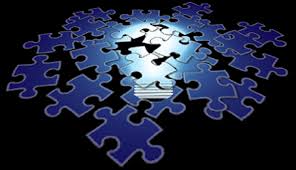The Process
First I clarified my objective and audience: to create a resource site for educators providing the necessary tools to teach digital literacy either as an independent class or  as an interdisciplinary addition to other curriculum. Since finishing my Masters in digital literacy and creating a Digital Literacy 12 BAA course, I have received numerous requests to share my fledgling resources. Simultaneously, I myself have been scouring the web and connecting with colleagues as I embarked on teaching Digital Literacy 12 for the first time. I thought it would be helpful to my colleagues (and myself) to create a resource site for educators devoted to digital literacy.
as an interdisciplinary addition to other curriculum. Since finishing my Masters in digital literacy and creating a Digital Literacy 12 BAA course, I have received numerous requests to share my fledgling resources. Simultaneously, I myself have been scouring the web and connecting with colleagues as I embarked on teaching Digital Literacy 12 for the first time. I thought it would be helpful to my colleagues (and myself) to create a resource site for educators devoted to digital literacy.
Next I brainstormed the possible components of such a site and asked for feedback from my colleagues (i.e. target audience). The main feedback I received was that I was trying to do too much so I trimmed my original design accordingly.
Now I needed to choose a technological platform for my resource site. As mentioned previously, I decided on a WordPress blog site due to my familiarity with the product and the wide spread use of WordPress across the web. Users are unconsciously familiar with the visuals and layout of WordPress.
Finally, I created my resource site. However, it is far from complete. Specifically, I still need to complete the connection between digital literacy and traditional literacy, new literacies and information literacy. In addition, I need to develop an organizational approach to how I will structure my “Tools” and “Sample Resources” so that I can indefinitely add addition resources. Finally, I need to continue adding post with lesson ideas, emerging research and interesting resources.
 What I Have Learned
What I Have Learned
I have learned that, as usual, I tend to over reach. However, as this meant to be an actual useable product, I am content knowing that I can settle into developing this site. I’ll get there!
The main progress I have made throughout this course revolves around inquiry. It was a pleasure to partake in a well-designed professional inquiry learning experience. I need to experience things to truly understand them and, by experience my own inquiry project, I feel my understanding of inquiry as a learning process has deepened. As well, I have a better grasp on the logistics of structuring inquiry.
This assignment has helped me synthesize the work I have done around digital literacy. It has allowed me to consider the research from my Masters, my experience from teaching digital literacy as a course twice this year and my conversation with colleagues around digital literacy. I’m excited to continue this journal by developing this resource site over the years.



